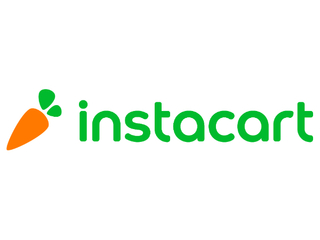DUOS expands AI capabilities to help seniors apply for assistance programs
It will complete and submit forms, and integrate with state benefit systems
Read more... 2016 is looking to be an all-out bloodbath for on-demand food startups.
2016 is looking to be an all-out bloodbath for on-demand food startups.
SpoonRocket, one among many on-demand food delivery apps, is shutting down, according to a statement given to TechCrunch by company co-founder Steven Hsiao.
We’re reaching out to confirm ourselves, but SpoonRocket has been going dark for at least the past couple weeks. The last Facebook post published the company was on March 1 and the company’s website has been offline for several days.
Hsiao said the company had become "contribution margin positive," meaning it was able to cover fixed costs through sales but not additional variable costs. In sunnier venture capital times (say, a year ago), the company may have been able to raise some new funds, but it wasn’t happening this time around. Hsiao said one of the last options was to be acquired by a quick-service restaurant chain, but the deal fell through.
SpoonRocket had raised $13.5 million in venture capital across a seed round (FundersClub, Y Combinator, Garry Tan, and Alexis Ohanian) and Series A round (led by Foundation Capital with participation from General Catalyst).
If you look at SpoonRocket on the App Store, it becomes clearer why the market may have not been working in the company’s favor.
DoorDash, Sprig, Caviar, Munchery, Bento—those five apps listed under “Customers Also Bought” represent such a cross-section of the massively overcrowded food delivery market, ranging from prepared meal delivery to ingredients-to-cook-your-own-meal delivery to full-on grocery delivery.
Over the past couple years, the space ballooned in its venture capital raising and hype. In 2015 alone, food tech startups raised $5.7 billion across 275 deals, according to CB Insights, marking a 152 percent increase in dollars and 102 increase in deals. Now we’re starting to see the bubble pop.
Just four days ago, Instacart (in its last funding round valued at $2 billion) slashed earnings for its driver workforce in a continuing effort to cut costs and increase revenues. A day before that news broke, Ola Cabs (Uber’s primary competitor in India) said it was shutting down Ola Café and Ola Store, its two food delivery apps that launched a year ago as experiments. Meanwhile, Uber continues to offer UberEATS in select markets (though not yet in India).
The list of bad news for food tech startups goes on and on.
Last month, a report emerged saying DoorDash (a food delivery service like SpoonRocket) would not be raising a new round at a valuation at $1 billion (as had been reported in late 2015) but a much lower $700 million mark. Still an impressive valuation, to be sure, but undeniably a downgrade. And at the end of 2015, Sidecar shut down after pivoting to food delivery service.
With so many startups still out there striving to serve this market, we can safely assume that consolidation (and shutdowns) are still to come.
It will complete and submit forms, and integrate with state benefit systems
Read more...The bill would require a report on how these industries use AI to valuate homes and underwrite loans
Read more...The artists wrote an open letter accusing OpenAI of misleading and using them
Read more...




